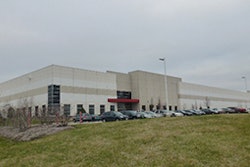Dallas—Oct. 3, 2013—Paragon Software Systems, Inc., a supplier of vehicle routing and scheduling optimization solutions, announces that Carbon Minimizer functionality adds environmental factors to its routing and scheduling optimization software. Paragon’s Carbon Minimizer helps users to further reduce carbon emissions and fuel consumption in their planned schedules, which reduces both their carbon footprint and transportation operating costs.
William Salter, president and CEO of Paragon Software Systems, said, “We have been helping improve environmental efficiency within the industry for over 25 years by building efficient route combinations that cut mileage and reduce fuel consumption. The Carbon Minimizer tool takes this a step further and enables transportation operators to look at the environmental impact of their vehicle routes as part of the planning process.”
Carbon Minimizer optimizes route efficiency in terms of fuel used and associated carbon emissions. “The Paragon algorithm has been extended to include vehicle weight and speed variations, and the impact that these factors have on fuel consumption and carbon emissions,” according to Richard Street, Paragon’s software development director. “As a result, users can review and monitor the carbon and fuel related key performance indicators (KPIs) of their operations, and can apply an additional optimization step to further reduce emissions and fuel used.”
The software estimates and reports the total CO2 and fuel content of all the routes and schedules, including distance, speed, weight and vehicle fuel efficiency. Carbon Minimizer is then used as a final optimization step to adjust the schedules—changing stop sequences and swapping stops between routes—to further reduce total CO2 emissions and fuel usage.
The software takes into account slower city-based travel that utilizes more fuel and emits more carbon emissions than highway travel, which is much faster. Similarly, heavily loaded vehicles use more fuel and CO2 per mile than empty ones. The Carbon Minimizer incorporates these factors to generate carbon-friendly schedules.
“Fuel consumption also depends on other factors, such as driving style, vehicle age, weather conditions and so on,” adds Street. “Regardless of these, vehicles use more fuel per mile if they are heavily laden or travelling at slow speeds—so by including these two key factors, Paragon is able to generate fuel-efficient and carbon-friendly routes and schedules.”
All Paragon users can benefit from explicit reporting of carbon and fuel factors. Companies using Paragon strategically to analyze distribution scenarios can make decisions based on expected carbon footprint, as well as cost criteria. Equally, companies using Paragon every day to calculate dynamic routes and schedules can monitor their carbon KPIs, such as expected CO2 per scheduled stop or per ton. And in all cases, Carbon Minimizer can be applied to refine the calculated schedules, and further reduce the carbon and fuel content.








